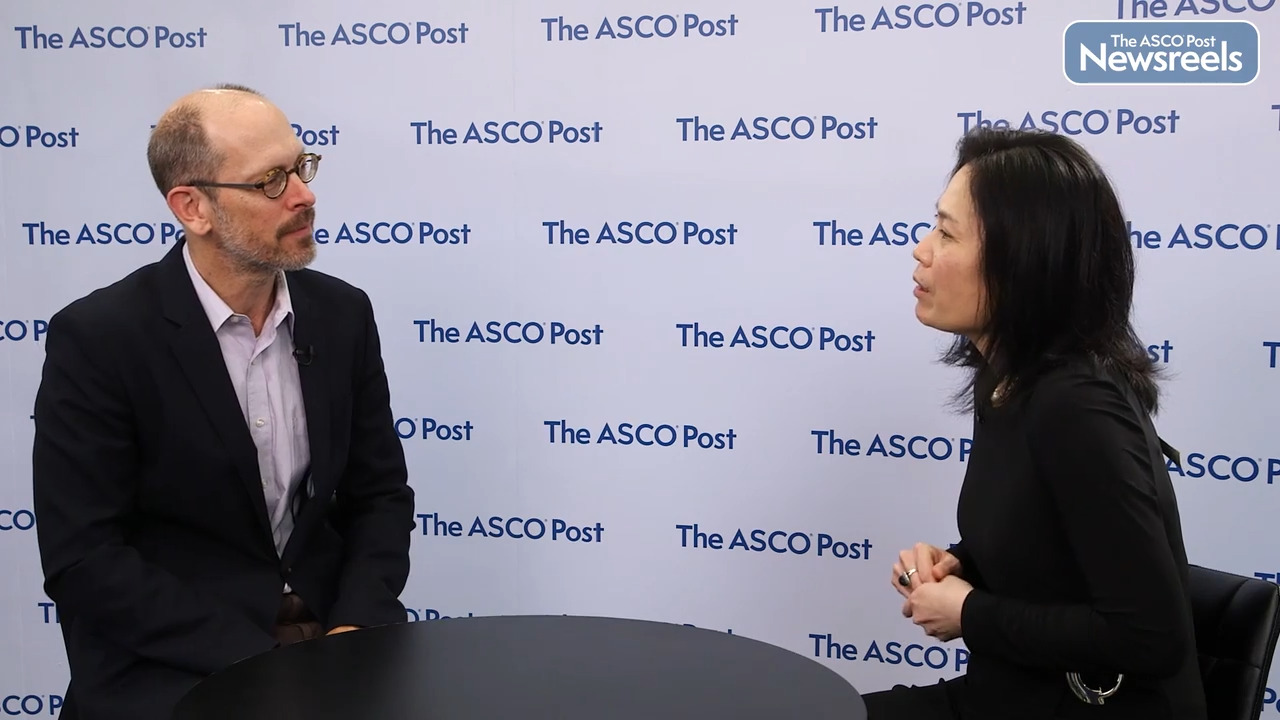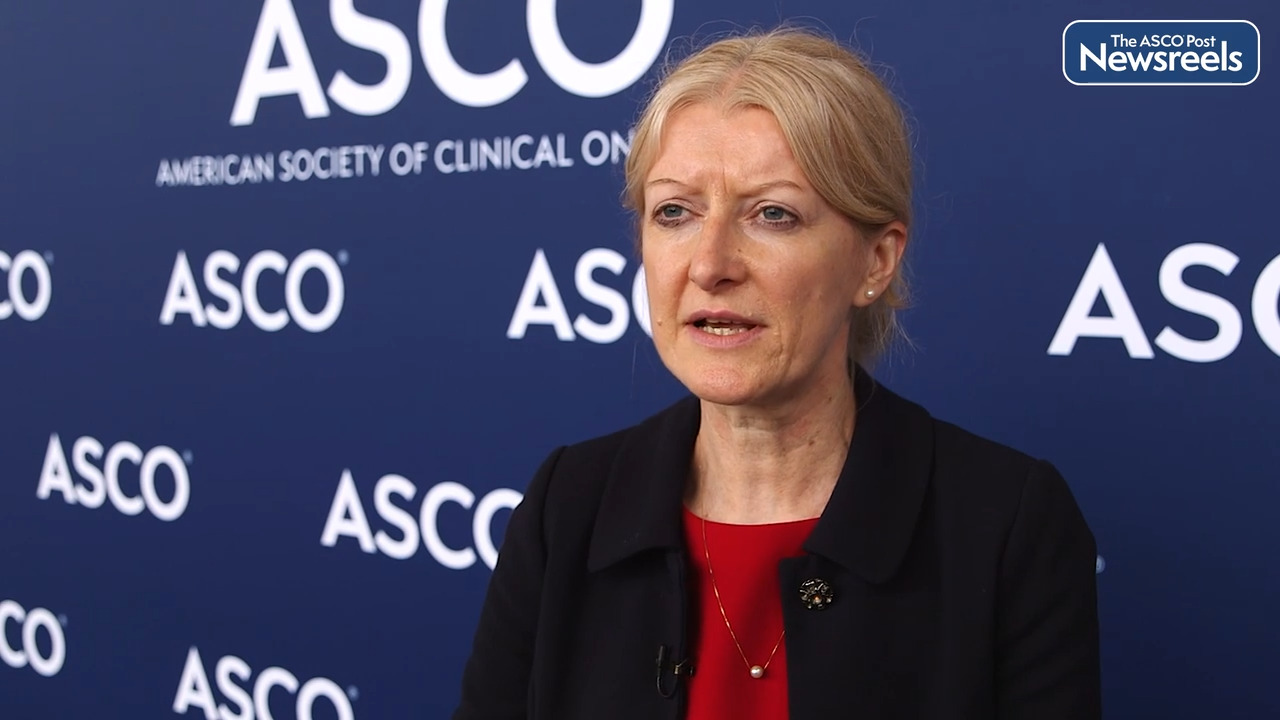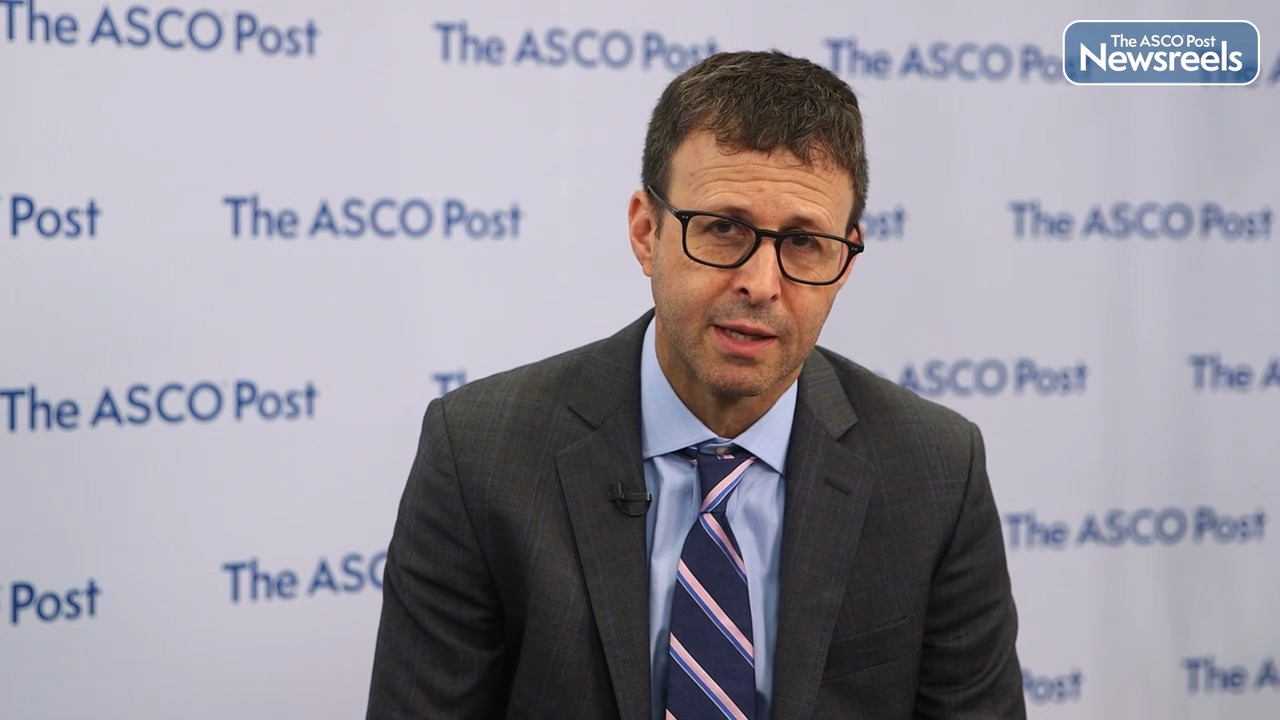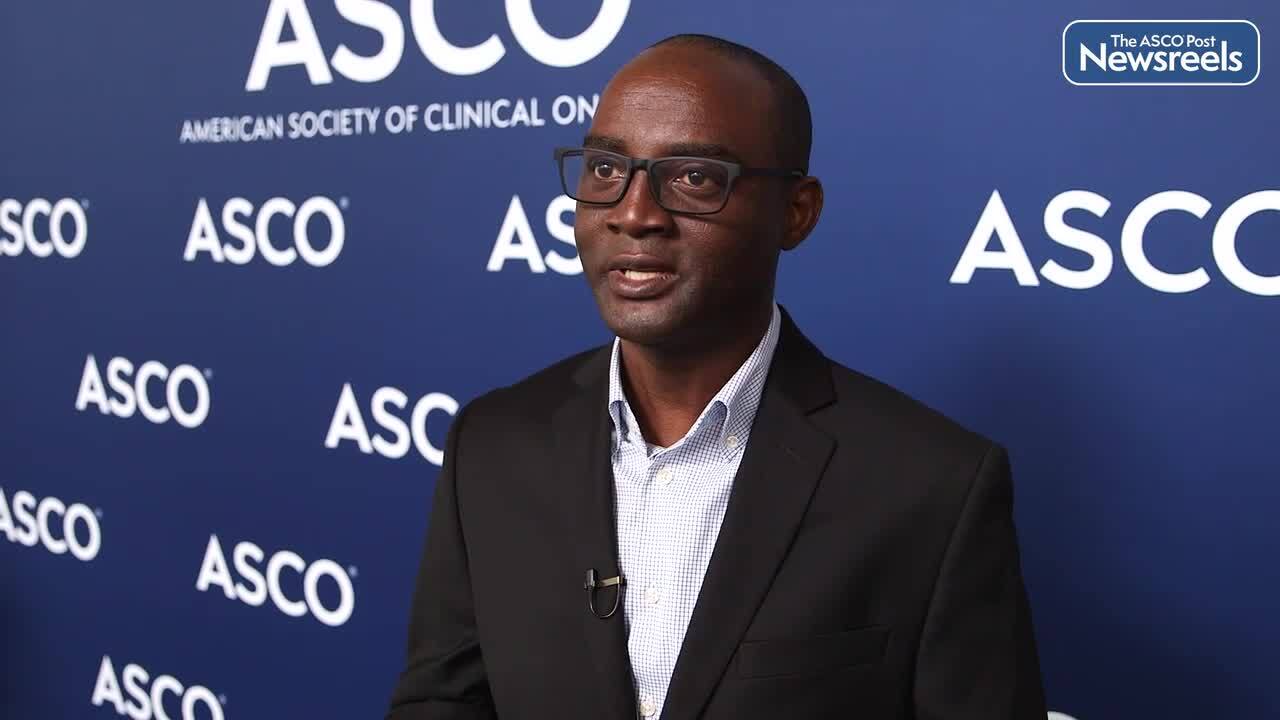Etienne Brain, MD, PhD, on Breast Cancer: Adjuvant Endocrine Therapy With or Without Chemotherapy in Older Patients
2022 ASCO Annual Meeting
Etienne Brain, MD, PhD, of the Institut Curie, discusses phase III findings from the Unicancer ASTER 70s trial, in which patients aged 70 or older with estrogen receptor–positive, HER2-negative breast cancer and a high genomic grade index received adjuvant endocrine therapy with or without chemotherapy. The data did not find a statistically significant overall survival benefit with this treatment after surgery (Abstract 500).
Transcript
Disclaimer: This video transcript has not been proofread or edited and may contain errors.
ASTER 70s study is a landmark study, which has been conducted in older women with luminal breast cancer in adjuvant setting questioning the addition of chemotherapy to endocrine treatment. The rationale behind is that the literature is very limited in terms of data published for the use of adjuvant chemotherapy in this situation in older ones. Multimorbidity competes with cancer on outcome and therapeutic ratio is also more narrow because there are higher risk of side effects in this population.
This trial screened near 2000 patients with the genomic grade index, the GGI, to assess the aggressivity of the disease and to spare the burden of chemotherapy in those patients with low-GGI tumor, while those with a high-GGI tumor were randomized between endocrine treatment alone as a standard arm versus chemotherapy followed by endocrine treatment. Near 2000 patients enrolled, 1,100 randomized between the two arms.
This trial shows, on the primary endpoint, which was overall survival by intent-to-treat analysis, that chemotherapy doesn't add a significant benefit in addition to endocrine treatment. That's the first message of caution from this study. Second one is that we can look at different subgroups and perform also the analysis according to the per protocol concept. This modifies or brings a nuance in the results, but I would say that the final potential benefit on overall survival in this case remains marginal. And in this population of older women, it is a key point and a double cautious message.
The next step for this study will be to try to improve the discriminative capacity of this kind of signature to identify those who could benefit still from chemotherapy, despite these global message and results on overall survival. This will be certainly possible with the use of the mass and the volume of data which has been collected in the randomized groups in this study, because there was a longitudinal collection of geriatric data, quality of life data, and treatment acceptability socioeconomic data, which will be very helpful to modelize differently, the prognosis of these ladies.
That's in the near future, and I think what brings the most in terms of information ASTER 70s, is that on the provisor that you change a bit of rules for inclusion criteria, because in this study we had very flexible inclusion criteria, we made a focus on quality of life and we use a single informed consent for screening and randomization, on the provisor that you facilitate or you simplify the processes, you can run large studies in a vast population, which is very often not considered for clinical trials left behind.
Related Videos
The ASCO Post Staff
Michael J. Overman, MD, of The University of Texas MD Anderson Cancer Center, and Jeanne Tie, MBChB, MD, of Peter MacCallum Cancer Centre, discuss results from the DYNAMIC trial, in which a circulating tumor DNA (ctDNA)-guided approach reduced the use of adjuvant chemotherapy without compromising recurrence-free survival in patients with stage II colon cancer (Abstract LBA100).
The ASCO Post Staff
Mairéad G. McNamara, PhD, MBBCh, of The Christie NHS Foundation Trust, discusses phase II findings of the NET-02 trial, which explored an unmet need in the second-line treatment of patients with progressive, poorly differentiated extrapulmonary neuroendocrine carcinoma. In the trial, the combination of liposomal irinotecan, fluorouracil, and folinic acid, but not docetaxel, met the primary endpoint of 6-month progression-free survival rate (Abstract 4005).
The ASCO Post Staff
Timothy J. Whelan, MD, of McMaster University and Hamilton Health Sciences, discusses findings from the LUMINA study, which found that women aged 55 or older who had grade 1–2 T1N0 luminal A breast cancer following breast-conserving surgery and were treated with endocrine therapy alone had very low rates of local tumor recurrence at 5 years. These patients, the research suggests, may be able to forgo radiotherapy (Abstract LBA501).
The ASCO Post Staff
Richard Finn, MD, of the Geffen School of Medicine at UCLA and the Jonsson Comprehensive Cancer Center, discusses analyses from the PALOMA-2 trial on overall survival with first-line palbociclib plus letrozole vs placebo plus letrozole in women with ER-positive/HER2-negative advanced breast cancer. The study met its primary endpoint of improving progression-free survival but not the secondary endpoint of overall survival. Although patients receiving palbociclib plus letrozole had numerically longer overall survival than those receiving placebo plus letrozole, the results were not statistically significant (Abstract LBA1003).
The ASCO Post Staff
Maxwell Oluwole Akanbi, MD, PhD, of McLaren Regional Medical Center, discusses the study he conducted, using the SEER database, to evaluate the impact of lung cancer screening recommendations on low-dose CT scanning. The data suggest that guidelines from the U.S. Preventive Services Task Force led to a more rapid decline in the incidence of advanced disease in the United States, especially among minority populations (Abstract 10506).





